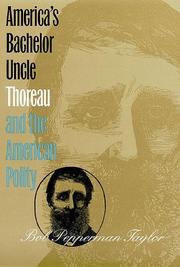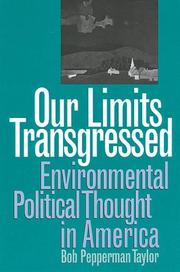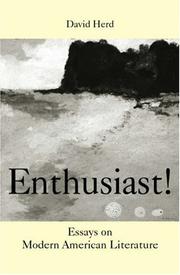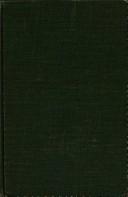| Listing 1 - 7 of 7 |
Sort by
|
Book
ISBN: 9783941875869 3941875868 Year: 2010 Publisher: Universitätsverlag Göttingen
Abstract | Keywords | Export | Availability | Bookmark
 Loading...
Loading...Choose an application
- Reference Manager
- EndNote
- RefWorks (Direct export to RefWorks)
Since the 1990s, questions about the relationship between changes in the natural environment and their literary representations have been subsumed and discussed in the field of literary studies under the term Ecocriticism. In this volume, environmental historical perspectives are also included in the discussion. On the one hand, one must ask how the change in the human relationship to "nature" (and the changing nuances of meaning of this term) is negotiated in literary texts at different times and which new literary forms of expression it may provoke. On the other hand, one must also ask how literary and cultural patterns can affect the design of the natural environment. To what extent do literary models of change correspond diachronically and synchronously with change processes in nature? This double question also includes the possibility of a reciprocal critique of environmental historical and literary perspectives.
Ecocriticism. --- Ecology in literature. --- Ecological literary criticism --- Environmental literary criticism --- Criticism --- environmental research --- pollution control --- Bienen --- Henry David Thoreau --- Ökologie

ISBN: 0700608060 0700631267 Year: 1996 Publisher: University Press of Kansas
Abstract | Keywords | Export | Availability | Bookmark
 Loading...
Loading...Choose an application
- Reference Manager
- EndNote
- RefWorks (Direct export to RefWorks)
Emphatically revisionist, Bob Pepperman Taylor reveals a Thoreau most people never knew existed. Contrary to conventional views, Taylor argues that Thoreau was one of America's most powerful and least understood political thinkers, a man who promoted community and democratic values, while being ever vigilant against the evils of excessive or illegitimate authority.Still widely viewed as a remarkable nature writer but simplistic philosopher with no real understanding of society, Thoreau is resurrected here as a profound social critic with more on his mind than utopian daydreams. Rather than the aloof and very private individualist spurned by conservatives and championed by radicals and environmentalists, Taylor portrays Thoreau as a genuinely engaged political theorist concerned with the moral foundations of public life. Like a solicitous "bachelor uncle" (a selfreferential phrase from his journals), Thoreau persistently prodded his fellow citizens to remember that they were responsible for independently evaluating the behavior of their government and political community. Taylor contends that, far from being confined to a few political essays ("Civil Disobedience," "Slavery in Massachusetts," and "A Plea for Captain John Brown"), Thoreau's political critique was a lifetime project that informed virtually all of his work. Taylor's persuasive study should send readers back to Walden, A Week on the Concord and Merrimack Rivers, and the 14volume Journal, among many other writings, for a provocative new look at one of America's most influential writers.
Thoreau, Henry David --- Political and social views --- National characteristics [American ] in literature --- Politics and literature --- United States --- History --- 19th century --- Large type books. --- English language --- Large print books --- Sight-saving books --- Books --- People with visual disabilities --- Books and reading --- Thoreau, Henry David, --- Political and social views. --- Thoreau, Henry D. --- Toro, Genri Devid, --- Thoreau, Henry, --- Toro, Henri Dejvid, --- Thorō, Enry Deēvint, --- So-lo, --- Toro, Henri Daṿid, --- Thoreau, David Henry, --- Sorō, Henrī Deividdo, --- טהארא, הענרי דייוויד --- טהארא, הענרי דײװיד --- תורו, הנרי דוד --- תורו, הנרי דוד, --- 梭罗, --- ソロー ヘンリー・デイヴィッド, --- Germanic languages --- Political science & theory
Book
ISBN: 1618117653 1618115928 Year: 2018 Publisher: Academic Studies Press
Abstract | Keywords | Export | Availability | Bookmark
 Loading...
Loading...Choose an application
- Reference Manager
- EndNote
- RefWorks (Direct export to RefWorks)
This collection of essays offers evolutionary psychological analysis of selected works from the American literary tradition. Application of evolutionary theory to writing by Ben Franklin, Nathaniel Hawthorne, Mark Twain, Walt Whitman, Edith Wharton, F. Scot Fitzgerald, Zora Neal Hurston, and others creates an interdisciplinary framework for examining key textual features: plot, theme, tone, setting, symbol, characterization, point of view; and at the same time provides an accessible introduction to Darwinian literary critical methodology. Pertinent scientific research, together with essential terms and concepts, is explained in context. Connections are made throughout to existing commentary on the targeted texts, illustrating how Darwinian scrutiny can enrich, extend, or reconfigure understandings derived from other critical approaches.
American literature --- Evolution (Biology) in literature. --- History and criticism. --- Darwin, Charles, --- Influence. --- Darwin, Charles, Robert --- Literature --- Classic Literature --- Evolution --- American Literature --- Essays --- Evolutionary Theory --- Literary Tradition --- Darwinian literary critical methodology --- Henry David Thoreau

ISBN: 0700607471 0700631275 Year: 1992 Publisher: University Press of Kansas
Abstract | Keywords | Export | Availability | Bookmark
 Loading...
Loading...Choose an application
- Reference Manager
- EndNote
- RefWorks (Direct export to RefWorks)
Is democracy hazardous to the health of the environment? Addressing this and related questions, Bob Pepperman Taylor analyzes contemporary environmental political thought in America. He begins with the premise that environmental thinking is necessarily political thinking because environmental problems, both in their cause and effect, are collective problems. They are also problems that signal limits to what the environment can tolerate. Those limits directly challenge orthodox democratic theory, which encourages expanding individual and political freedoms and is predicated on growth and abundance in our society. Balancing the competing needs of the natural world and the polity, Taylor asserts, must become the heart of the environmental debate.Contemporary environmental thinking derives, according to Taylor, from two wellestablished traditions in American political thought. The pastoral tradition, which he traces from Thoreau through John Muir to today's deep ecology, biocentrism, and Green movement, appeals to moral lessons that nature can teach us. The progressive tradition—which he traces from Gifford Pinchot to the apostate neomalthusians (who reject the commitment to democratic equality) and liberal theorists like Roderick Nash, Christopher Stone, and Mark Sagoff—focuses on the role that nature plays in supporting a liberal democratic society. This analysis sidesteps the usual anthropocentricbiocentric formulation of the debate, which tends to center on the most appropriate conception of nature abstractly considered, and reorients the discussion to a consideration of the relationship between our political and environmental values. If we are to stem the thoughtless pillaging of the environment, Taylor contends, that's where the changes must occur.Any satisfactory resolution of the tension between the garden and the machine must draw upon the best of both the pastoral and progressive traditions, Taylor concludes. The best of pastoralism teaches us that any reform must challenge the human arrogance and crude materialism that permeates much of liberal society. In addition to Nash, Stone, and Sagoff, Taylor discusses other contemporary thinkers such as Garrett Hardin, Paul Ehrlich, Robert Heilbroner, William Ophuls, Julian Simon, Robert Paehlke, J. Donald Moon, Kirkpatrick Sale, J. Baird Callicott, Holmes Rolston, Paul Taylor, Barry Commoner, and Murray Bookchin.
Environmental policy --- United States --- Philosophy --- Political aspects --- Philosophy. --- Pinchot, Gifford, --- Thoreau, Henry David, --- Environment and state --- Environmental control --- Environmental management --- Environmental protection --- Environmental quality --- State and environment --- Environmental auditing --- Government policy --- Environmental policy & protocols

ISBN: 9781526125118 1526125110 9781526126306 1526126303 9780719095849 0719095840 9780719074288 0719074282 Year: 2007 Publisher: Manchester, UK ;New YorkNew York Manchester University Press ;Distributed exclusively in the USA by Palgrave
Abstract | Keywords | Export | Availability | Bookmark
 Loading...
Loading...Choose an application
- Reference Manager
- EndNote
- RefWorks (Direct export to RefWorks)
Enthusiast! is a polemical history of American literature told from the point of view of six of its major enthusiasts.Complaining that his age was 'retrospective', Emerson injected enthusiasm into American literature as a way of making it new. 'What,' he asked, 'is a man good for without enthusiasm? and what is enthusiasm but the daring of ruin for its object?' This book takes enthusiasm to be a defining feature of American literature, showing how successive major writers - Melville, Thoreau, Pound, Moore, Frank O'Hara and James Schuyler - have modernised and re-modeled Emerson's founding sense of enthusiasm. The book presents the writer as enthusiast, showing how enthusiasm is fundamental to the composition and the circulation of literature. Enthusiasm, it is argued, is the way literary value is passed on.Starting with a brief history of enthusiasm from Plato to Kant and Emerson, the book features chapters on each of Melville, Thoreau, Pound, Moore, O'Hara and Schuyler. Each chapter presents an aspect of the writer as enthusiast, the book as a whole charting the changing sense of literary enthusiasm from Romanticism to the present day. Lucidly written and combatively argued, the book will appeal to readers of American literature or modern poetry, and to all those interested in the circulation of literary work.
Enthusiasm in literature. --- American literature --- History and criticism. --- Literature --- Literature: History & Criticism --- LITERARY CRITICISM / American / General --- Literature: history & criticism --- American literature. --- Agrarians (Group of writers) --- Ezra Pound. --- Frank O'Hara. --- Henry David Thoreau. --- Immanuel Kant. --- James Schuyle. --- Marianne Moore. --- Ralph Waldo Emerson. --- Socrates. --- William Penn. --- cultural activism. --- enthusiasm. --- nearer testament. --- polemic. --- transmission of literature. --- unbridled self. --- Enthusiasm in literature

ISBN: 0801407877 0801491525 1501707655 1501707663 Year: 1973 Publisher: Cornell University Press
Abstract | Keywords | Export | Availability | Bookmark
 Loading...
Loading...Choose an application
- Reference Manager
- EndNote
- RefWorks (Direct export to RefWorks)
›p Lawrence Buell combines intellectual history and critical explication, giving equal attention to general trends and to particular works and individuals. His chapters on conversation, religious discourse, catalog rhetoric, and literary travelogue treat intensively topics that have been relatively neglected. His analyses of Ellery Channing's poetry and the use of persona in Emerson and Very are also innovative. In the final section, he offers the first systematic account of the autobiographical tradition in transcendentalist writing.›pp›
American literature --- -Transcendentalism (New England) --- New England transcendentalism --- English literature --- History and criticism --- United States --- U.S.A. --- Jungtinės Amerikos valstybės --- Soedinennye Shtaty Si︠e︡vernoĭ Ameriki --- Soedinennye Shtaty Severnoĭ Ameriki --- Si︠e︡vero-Amerikanskīe Soedinennye Shtaty --- Severo-Amerikanskie Soedinennye Shtaty --- Zlucheni Derz︠h︡avy --- USA --- US --- Arhab --- Ar. ha-B. --- Artsot ha-Berit --- ولايات المتحدة الامريكية --- Wilāyāt al-Muttaḥidah al-Amirīkīyah --- ABSh --- Amerika Birlăshmish Shtatlary --- ABŞ --- Amerika Birlăşmi Ştatları --- Forente stater --- Spojené staty americké --- Severo-Amerikanskie Shtaty --- Sjedinjene Američke Države --- Zʹi︠e︡dnani Derz︠h︡avy Ameryky --- Amerikai Egyesült Államok --- Yhdysvallat --- Verenigde Staten --- Egyesült Államok --- Hiwsisayin Amerikayi Miatsʻeal Tērutʻiwnkʻ --- Estados Unidos de América --- United States of America --- Fareyniḳṭe Shṭaṭn --- Artzois Ha'bris --- Estados Unidos da América do Norte --- SShA --- Soedinennye Shtaty Ameriki --- VSA --- États-Unis d'Amérique --- Vereinigte Staaten von Amerika --- Stati Uniti d'America --- Estados Unidos --- EE.UU. --- Stany Zjednoczone --- ĒPA --- Amerika Qūrama Shtattary --- Amerika Qŭshma Shtatlari --- SAD --- Saharat ʻAmērikā --- Hēnomenai Politeiai Amerikēs --- ZSA --- Mei-kuo --- Meiguo --- Mei guo --- ZDA --- Združene države Amerike --- U.S. --- America (Republic) --- Amirika Carékat --- Verenigde State van Amerika --- VS --- ولايات المتحدة --- Wilāyāt al-Muttaḥidah --- ولايات المتّحدة الأمريكيّة --- Wilāyāt al-Muttaḥidah al-Amrīkīyah --- Estatos Unitos --- Estatos Unitos d'America --- Ètats-Unis d'Amèrica --- Estaos Xuníos d'América --- Estaos Xuníos --- Tetã peteĩ reko Amérikagua --- Istadus Unidus --- Amerika Birlăşmiş Ştatları --- Amerika ka Kelenyalen Jamanaw --- Bí-kok --- Amerika Qushma Shtattary --- AQSh --- Злучаныя Штаты Амерыкі --- Zluchanyi︠a︡ Shtaty Ameryki --- Yunaeted Stet blong Amerika --- Yunaeted Stet --- Vaeinigte Staatn --- Vaeinigte Staatn vo Amerika --- Stadoù-Unanet Amerika --- Sŭedineni amerikanski shtati --- САЩ --- SASht --- Съединените щати --- Sŭedinenite shtati --- Америка (Republic) --- Amerika (Republic) --- Estats Units d'Amèrica --- Америкӑри Пӗрлешӳллӗ Штатсем --- Amerikări Pĕrleshu̇llĕ Shtatsem --- Stati Uniti --- SUA (Stati Uniti d'America) --- Unol Daleithiau America --- Unol Daleithiau --- Amerikas Forenede Stater --- Vereinigte Staaten --- Wááshindoon Bikéyah Ałhidadiidzooígíí --- Zjadnośone staty Ameriki --- Ameerika Ühendriigid --- Ηνωμένες Πολιτείες της Αμερικής --- Hēnōmenes Politeies tēs Amerikēs --- Η.Π.Α. --- Ē.P.A. --- Usono --- Unuiĝintaj Ŝtatoj de Ameriko --- Американь Вейтьсэндявкс Штаттнэ --- Amerikanʹ Veĭtʹsėndi︠a︡vks Shtattnė --- Ameriketako Estatu Batuak --- Feriene Steaten --- Feriene Steaten fan Amearika --- FS --- Stâts Unîts di Americhe --- Stâts Unîts --- Stáit Aontaithe Mheiriceá --- Steatyn Unnaneysit America --- Steatyn Unnaneysit --- S.U.A. --- Na Stàitean Aonaichte --- NSA --- Mî-koet --- 미국 --- Miguk --- Amerikayi Miatsʻyal Nahangner --- Miatsʻyal Nahangner --- Intellectual life --- -American literature --- Transcendentalism (New England) --- Littérature américaine --- Transcendantalisme (Philosophie américaine) --- Histoire et critique --- Style [Literary ] --- Thoreau, Henry David --- 19th century --- History and criticism. --- Unitarianism --- American Renaissance --- Ellery Channing --- Ralph Waldo Emerson --- Henry David Thoreau --- Jones Very --- literary nonfiction --- transcendentalism --- self-examination --- Walt Whitman
Book
ISBN: 0823278468 0823278476 0823278441 082327845X Year: 2018 Publisher: Baltimore, Maryland : Project Muse,
Abstract | Keywords | Export | Availability | Bookmark
 Loading...
Loading...Choose an application
- Reference Manager
- EndNote
- RefWorks (Direct export to RefWorks)
From the eighteenth-century abolitionist motto "Am I Not a Man and a Brother?" to the Civil Rights-era declaration "I AM a Man," antiracism has engaged in a struggle for the recognition of black humanity. It has done so, however, even as the very definition of the human has been called into question by the biological sciences. While this conflict between liberal humanism and biological materialism animates debates in posthumanism and critical race studies today, Antebellum Posthuman argues that it first emerged as a key question in the antebellum era. In a moment in which the authority of science was increasingly invoked to defend slavery and other racist policies, abolitionist arguments underwent a profound shift, producing a new, materialist strain of antislavery. Engaging the works of Douglass, Thoreau, and Whitman, and Dickinson, Cristin Ellis identifies and traces the emergence of an antislavery materialism in mid-nineteenth century American literature, placing race at the center of the history of posthumanist thought. Turning to contemporary debates now unfolding between posthumanist and critical race theorists, Ellis demonstrates how this antebellum posthumanism highlights the difficulty of reconciling materialist ontologies of the human with the project of social justice.
Humanism --- Racism --- History --- United States --- Race relations --- Philosophy --- Classical education --- Classical philology --- Philosophical anthropology --- Renaissance --- U.S.A. --- Jungtinės Amerikos valstybės --- Soedinennye Shtaty Si︠e︡vernoĭ Ameriki --- Soedinennye Shtaty Severnoĭ Ameriki --- Si︠e︡vero-Amerikanskīe Soedinennye Shtaty --- Severo-Amerikanskie Soedinennye Shtaty --- Zlucheni Derz︠h︡avy --- USA --- US --- Arhab --- Ar. ha-B. --- Artsot ha-Berit --- ولايات المتحدة الامريكية --- Wilāyāt al-Muttaḥidah al-Amirīkīyah --- ABSh --- Amerika Birlăshmish Shtatlary --- ABŞ --- Amerika Birlăşmi Ştatları --- Forente stater --- Spojené staty americké --- Severo-Amerikanskie Shtaty --- Sjedinjene Američke Države --- Zʹi︠e︡dnani Derz︠h︡avy Ameryky --- Amerikai Egyesült Államok --- Yhdysvallat --- Verenigde Staten --- Egyesült Államok --- Hiwsisayin Amerikayi Miatsʻeal Tērutʻiwnkʻ --- Estados Unidos de América --- United States of America --- Fareyniḳṭe Shṭaṭn --- Artzois Ha'bris --- Estados Unidos da América do Norte --- SShA --- Soedinennye Shtaty Ameriki --- VSA --- États-Unis d'Amérique --- Vereinigte Staaten von Amerika --- Stati Uniti d'America --- Estados Unidos --- EE.UU. --- Stany Zjednoczone --- ĒPA --- Amerika Qūrama Shtattary --- Amerika Qŭshma Shtatlari --- SAD --- Saharat ʻAmērikā --- Hēnomenai Politeiai Amerikēs --- ZSA --- Mei-kuo --- Meiguo --- Mei guo --- ZDA --- Združene države Amerike --- U.S. --- America (Republic) --- Amirika Carékat --- Verenigde State van Amerika --- VS --- ولايات المتحدة --- Wilāyāt al-Muttaḥidah --- ولايات المتّحدة الأمريكيّة --- Wilāyāt al-Muttaḥidah al-Amrīkīyah --- Estatos Unitos --- Estatos Unitos d'America --- Ètats-Unis d'Amèrica --- Estaos Xuníos d'América --- Estaos Xuníos --- Tetã peteĩ reko Amérikagua --- Istadus Unidus --- Amerika Birlăşmiş Ştatları --- Amerika ka Kelenyalen Jamanaw --- Bí-kok --- Amerika Qushma Shtattary --- AQSh --- Злучаныя Штаты Амерыкі --- Zluchanyi︠a︡ Shtaty Ameryki --- Yunaeted Stet blong Amerika --- Yunaeted Stet --- Vaeinigte Staatn --- Vaeinigte Staatn vo Amerika --- Stadoù-Unanet Amerika --- Sŭedineni amerikanski shtati --- САЩ --- SASht --- Съединените щати --- Sŭedinenite shtati --- Америка (Republic) --- Amerika (Republic) --- Estats Units d'Amèrica --- Америкӑри Пӗрлешӳллӗ Штатсем --- Amerikări Pĕrleshu̇llĕ Shtatsem --- Stati Uniti --- SUA (Stati Uniti d'America) --- Unol Daleithiau America --- Unol Daleithiau --- Amerikas Forenede Stater --- Vereinigte Staaten --- Wááshindoon Bikéyah Ałhidadiidzooígíí --- Zjadnośone staty Ameriki --- Ameerika Ühendriigid --- Ηνωμένες Πολιτείες της Αμερικής --- Hēnōmenes Politeies tēs Amerikēs --- Η.Π.Α. --- Ē.P.A. --- Usono --- Unuiĝintaj Ŝtatoj de Ameriko --- Американь Вейтьсэндявкс Штаттнэ --- Amerikanʹ Veĭtʹsėndi︠a︡vks Shtattnė --- Ameriketako Estatu Batuak --- Feriene Steaten --- Feriene Steaten fan Amearika --- FS --- Stâts Unîts di Americhe --- Stâts Unîts --- Stáit Aontaithe Mheiriceá --- Steatyn Unnaneysit America --- Steatyn Unnaneysit --- S.U.A. --- Na Stàitean Aonaichte --- NSA --- Mî-koet --- 미국 --- Miguk --- Amerikayi Miatsʻyal Nahangner --- Miatsʻyal Nahangner --- Antislavery movements --- Американь Вейтьсэндявкс Штаттнэ --- Spojené obce severoamerické --- Antislavery. --- Biopolitics. --- Frederick Douglass. --- Henry David Thoreau. --- New Materialism. --- Nonhuman. --- Posthumanism. --- Racial Science. --- Slavery. --- Walt Whitman. --- États-Unis --- É.-U. --- ÉU
| Listing 1 - 7 of 7 |
Sort by
|

 Search
Search Feedback
Feedback About UniCat
About UniCat  Help
Help News
News